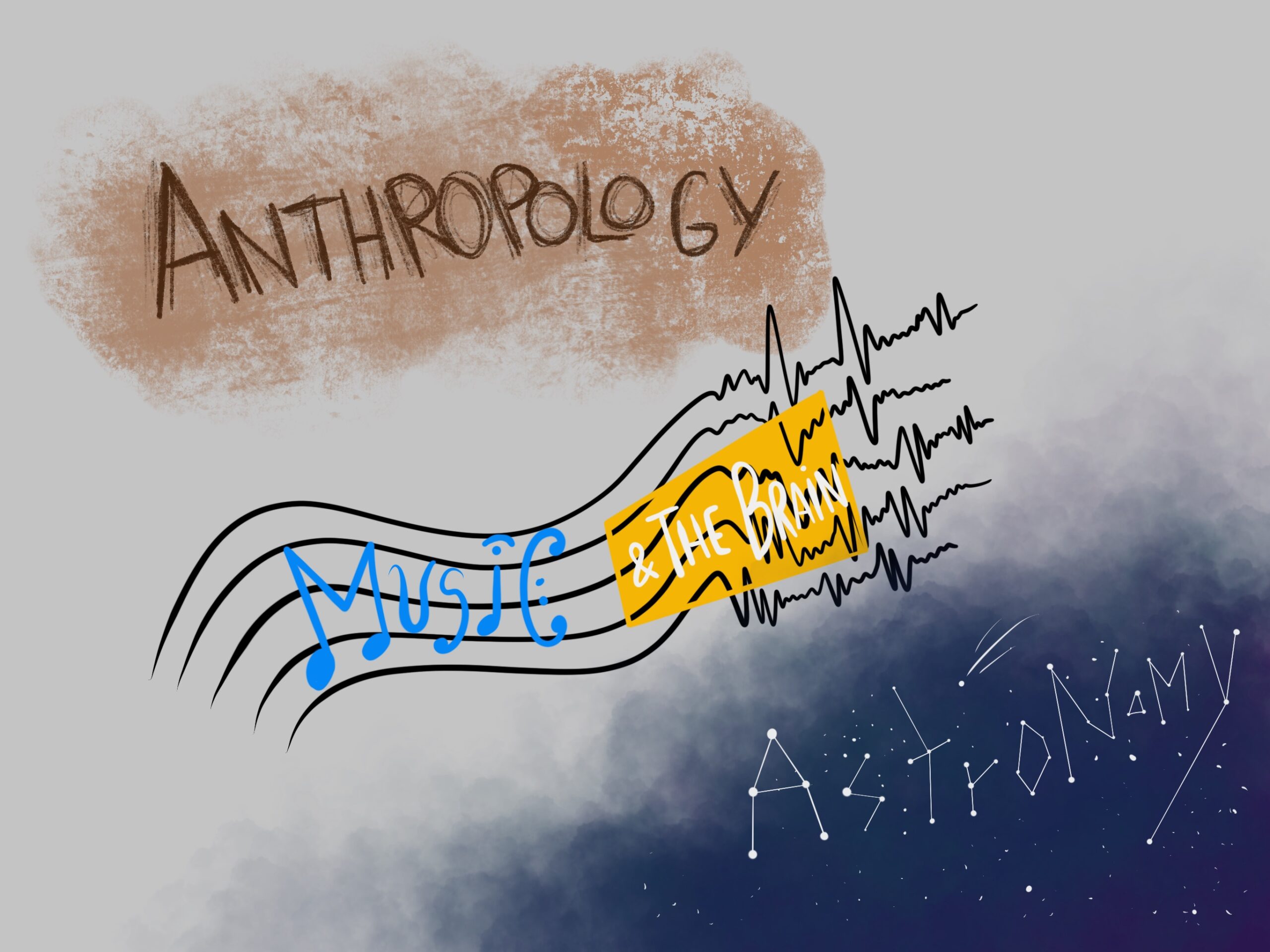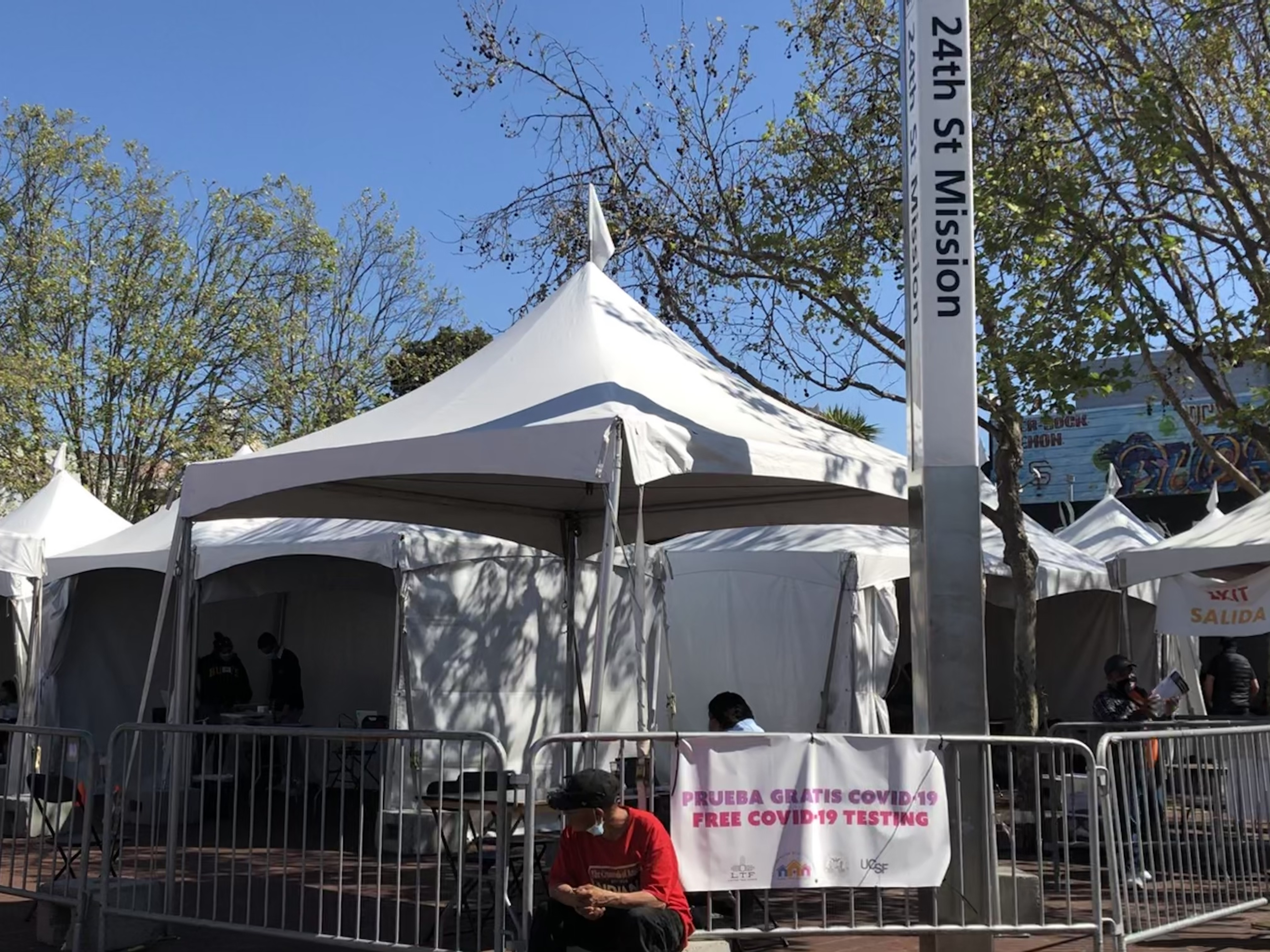This year, LWHS offered a new and unique set of science classes for its 11th and 12th graders to choose from. Three classes may be of particular interest to students of all grades: Physics Honors: Astronomy, Music and the Brain and Behavioral Genetics and Anthropology.

Art by Primo Lagaso Goldberg
Physics is a prerequisite for Physics Honors: Astronomy. According to Kaden Evans-Shaw ’21, completing this prerequisite is well worth it. After taking Astronomy, Evans-Shaw said, “I definitely have a better understanding of how the universe works. It’s nice to be able to look at the night sky and really know what exactly I’m looking at.” Evans-Shaw also proclaims that she now “feels well equipped with stargazing tools!”
Laurie Kerrigan, who teaches Astronomy, explains that she enjoys teaching astronomy because students are “inherently curious” about how the universe works and astronomy “uses basic physics to explain the rules for how the whole universe works.”
This environment of excitement and discovery is what makes Astronomy class so fun for students and teachers alike. Evans-Shaw is confident that she’ll use what she’s learned in Astronomy in her life going forwards, “not necessarily in an academic way, but in a fun way,” she says.
Students who aren’t over the moon about Astronomy, though, might consider enrolling in Music and The Brain. According to the class description, Music and The Brain explores “a variety of questions considering how music is at the core of what makes us human.” This semester-long course requires no prerequisites and has been approved by the UC system as a G Elective Course.
Anton Krukowski, who teaches Music And The Brain, originally presented the idea in hopes of introducing more interdisciplinary courses at LWHS. “Students are the ones living interdisciplinary lives, by going from class to class,” Krukowski says. “It’s as if the burden is put on students to make connections on their own.” Krukowski believes that interdisciplinary classes are so valuable because they encourage students to draw connections between different subjects, as well as different experiences and social issues. Krukowski explained that, in his view, interdisciplinary classes “make school a more dynamic place to be.” Students taking Music And The Brain get the unique chance to participate in both a science class and also a music class.
Emma Dean ’21 chose to enroll in Music and The Brain because “music has been a pretty big part of my life ever since I can remember, but I’d never studied the science behind it or why it’s important.” Dean’s favorite part of the class was when she and her peers were asked to create a “musical autobiography,” in which they compiled a playlist of songs from different parts of their life. “It was fun to go back through old playlists and look at the kind of music that I used to like, why I liked it at that time, and what emotions it stirs up for me now,” Dean said. Krukowski also mentioned how he enjoyed the musical autobiography project, as “it felt very personal and meaningful.” One of Krukowski’s fears about studying music through a scientific lens was that it “would interfere with the personal reaction to music (students) have loved throughout their lives. But rather, finding the scientific connections can do more of that,” and even deepen the sentimental value students attach to their favorite songs.
If learning about music isn’t your jam, you might dig Behavioral Genetics and Anthropology. This class “focuses on the connection between evolutionary biology, genetics and the wide range of traits influenced by gene-culture interactions in humans,” according to its description. Anthropology is a semester-long class with a Biology prerequisite.
Claudia Andrade decided to teach Behavioral Genetics and Anthropology at LWHS because of her background in Anthropology. Before coming to LWHS, Andrade taught Anthropology at De Anza College for nine years. She said when she “had the opportunity to teach the behavioral genetics class (at LWHS), I definitely wanted to bring in the anthropological framework to the class.” Andrade enjoys teaching Behavioral Genetics and Anthropology at LWHS not only because of her passion for the coursework but also because of the inquisitive, collective environment of the class. “Every class is an opportunity to ask new questions,” Andrade says, “and there are new conversations that take place depending on who’s in the class, what questions are being asked, and then where the conversation goes.”
Daisy Maunupau ’21, who is currently taking Behavioral Genetics and Anthropology, enjoys how the course incorporates current events and personal connections into the material. “Not only do you learn about anthropology, but you also learn about how to respect people’s cultures,” Maunupau said, “the class definitely translates over into real-world situations.”
Students who take Behavioral Genetics and Anthropology are paired up at the beginning of the semester and tasked with leading whole-class discussions about different topics, such as early evolutionists, sex, biology and behavior, and Human variation and race, throughout the semester. Maunupau describes the class as a “good balance between different hands-on activities, check-ins, and lectures.”
In these new distinctive science classes, students are able to pique their curiosity, broaden their perspective and fulfill their graduation requirements through studying the stars and seasons in Physics Honors: Astronomy, reflecting on the ways music impacts them in Music And The Brain, or learning about human behavior as it relates to race, sex, and class in Behavioral Genetics and Anthropology. And these three courses are just a few of the unique options offered by the LWHS science department.







